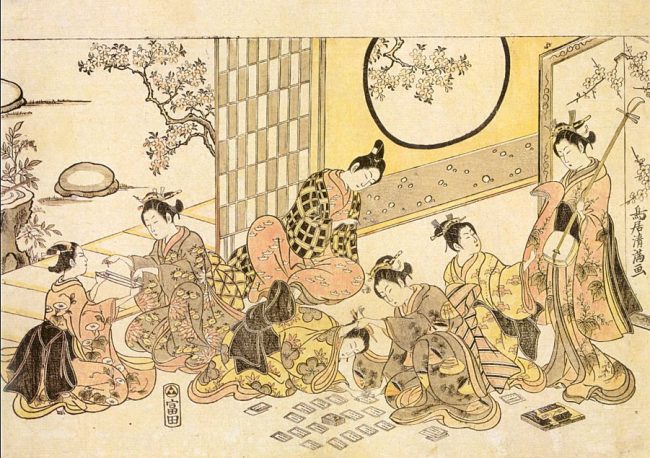Making One Hundred Friends, or: One Hundred Poems, One Hundred Poets
Two years ago, I wrote about an excellent little book called the Hyakunin Isshu, a Medieval Japanese poetry anthology of one hundred poems, specifically five-line tanka, each by a different poet. At the time, I started wondering if, perhaps, I could memorise that many poems. If that sounds overly ambitious, keep in mind that this is something people actually do for a game called “karuta,” which is a card-matching game based around the poems. So, it’s certainly feasible, but I’m unsure about memorising the Hyakunin Isshu specifically. As much as I love the book, I do like some poems more than others, and besides, I’d like to write about the experience as I go. Each of the hundred poems, though, has already been covered, and covered very well, at this excellent blog.
Besides, as much as I admire Japan, I’m also a good patriot and so do ultimately prefer the literature of my own people. Could I make an English Hyakunin Isshu? The idea has stuck with me this long, and after memorising a couple of poems recently I remembered how much I enjoy doing this. So, after floating the idea on Twitter, I’ve decided to go ahead with this project.

Now, the closest equivalent to tanka we have would be the sonnet, but I soon decided to branch out a bit. I’m going to be spending a lot of time with these poems, and putting together a hundred of these was already a challenge, so though the sonnet would ultimately be well represented, I’m not restricting the list to them.
Regarding language and the poets’ countries of origin, I consider this an English project, though I also included a few Frenchmen since, contrary to what geographers may tell you, Britain is not an island, as well as one Japanese as a nod to the project’s origin. Furthermore, since this is supposed to be a set of standards, I was generally conservative in my selections; some of these are very well-known, almost cliché. That’s fine, because they deserve their reputation, and one benefit from this project will be a greater familiarity with the most notable poems in the language. Several of these are the types that make one think, “Oh, so that’s where that saying comes from!”
I prioritised poets from the Sixteenth and Seventeenth Centuries, though the ultimate range is quite broad and other eras are well represented. Of course, some worthy poets are left out simply because I didn’t have room, or they didn’t have any suitable poems. A few of these are already quite a bit longer than is probably wise.
Me being me, I also favoured Cavaliers over Puritans, and Southerners over Yankees.
I should mention that I did get quite a bit of help in selecting these poets, as one can see from this thread where I announced the project. Joshua Jennings, always trustworthy in literary matters, contributed the most, but I also received suggestions from Arthur Ownby, Testis Gratus, Amy Mellein, Egon Maistre, and Fredrik Andréasson. Ezra Pound’s book ABC of Reading provided several of these, as well.
I am including some poems I’ve already memorised, so I do have a head start. Still, I’m unsure how long this will take. My goal will be one or two poems per week, but they vary so wildly in length that it’s hard to predict how this will go. Nonetheless, when it comes to reciting poetry, my ability is second only to Humpty Dumpty.
One final note, for those wondering about the “hundred friends” title. It comes from a comic called Chihayafuru, which is based on the karuta card game mentioned above and is how I first learned of both the game and the poems. I wrote about it a few years ago. In any case, when the protagonist first begins with the game and has to memorise all of the poems, her coach tells her to think of it as making a hundred new friends. The metaphor between a poem or poet and a friend is one that has stuck with me. As one can imagine, there’s no better way to really learn and understand a poem than to commit it to memory. Beyond that, though, there’s a deeper connection that’s difficult to describe, but it’s just what Confucius was getting at when he encouraged his students to study the Book of Odes, because the poems “will stimulate your emotions, broaden your observation, enlarge your fellowship, and express your grievances.” Some of my posts on these poems will be longer than others; some may offer a bit of analysis, others will basically just be “here’s a poem I think is worthwhile,” but I hope to be able to explain this better as we go on.
I also hope to encourage you to make some new friends of your own.